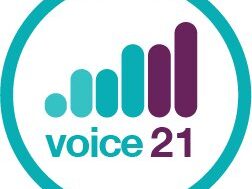#ECSeries: Managing Behaviour in the Classroom with Amy Forrester
In this webinar Amy Forrester shares her key takeaways on behaviour management.
This webinar will focus on practical, evidence informed strategies regarding managing behaviour in the classroom. Amy will cover a number of approaches, as well as exploring the ways in which we view behaviour, and how these are best deployed to help us all achieve excellent behaviour in the classroom.
Amy is an experienced pastoral and behaviour leader in a secondary school in the North West of England. She writes for a number of publications on behaviour and pastoral care, as well as supporting teacher development of behaviour management.
Resources
- Download Amy’s presentation
- Behaviour management in the classroom
- Behaviour Advice for new teachers
- Beyond Behaviourism Motivation and Self-Regulation in the Classroom – An Impact article from Sue Cowley explores some of the challenges with behaviourist approaches to behaviour management and proposes some alternatives
- Webinar playback: Behaviour management Q&A – Tom Bennett in conversation with Amy Forrester
- A review by Tom Bennett for the DfE looking at how school leaders can create a strong culture around behaviour in their school. Tom Bennett also produced this practical guide.
- The Education Endowment Foundation’s guidance report on improving behaviour in schools, including research evidence in this area- Improving Behaviour in Schools | EEF
- EEF Improving behaviour: evidence review
- A summary poster based on the Education Endowment Foundation’s guidance report
- By using research-based strategies combining appropriate levels of dominance and cooperation and an awareness of student needs, teachers can build positive classroom dynamics. Marzano and Marzano 2003 ‘The Key to Classroom Management
- Wannarka and Ruhl 2008 – Seating arrangements that promote positive academic and behavioural outcomes: a review of empirical research
- Webinar playback: ‘Teach Like a Champion’ with Doug Lemov
- Behaviour Management: practical tips
- Classroom routines are an important part of making classrooms safe and productive spaces for pupils to learn. Reflecting on classroom routines
- Here are some steps you can take to pull your classroom into shape: Resetting and rebooting behaviour
Learn more about the Chartered College of Teaching
Early Career Hub – The Early Career Hub is our one-stop shop for trainee teachers, early career teachers, and those involved in supporting, coaching and mentoring those new to the profession.
Early Childhood Hub – The Early Childhood Hub hosts content by, and for, early childhood education practitioners, with a focus on pedagogy and practice in early childhood education.
Research Hub – The Research Hub hosts summaries of academic and practitioner research as well as reports that Chartered College of Teaching members have contributed to. You can also find a list of opportunities to participate in external research projects and access a range of tools to support you in your research engagement journey.
Video Hub – The Video Hub hosts short classroom practice videos, filmed in a variety of settings, and recorded interviews with a range of teachers, leaders and educators. Members will also find, and be able to access, ‘on demand’ recordings of our previous webcasts and events.
Impact is the termly journal of the Chartered College of Teaching. It connects research findings to classroom practice, with a focus on the interests and voices of teachers and educators. It supports the teaching community by promoting discussion around evidence within the classroom, and enabling teachers to share and reflect on their own use of research.
Learning Hub – The Learning Hub is your home for professional learning and development. You will find links to bitesize CPD units and details of other available courses.
Chartered Teacher Status is a professional accreditation that recognises the knowledge, skills and behaviours of highly accomplished teachers and school leaders, offering a career pathway that is focused on developing and recognising high-quality teaching and leadership practice. As a professional accreditation, Chartered Status builds on individual practice, priorities and interests and can be undertaken at your own pace, up to three years.
Fellowship (FCCT) was established to recognise the commitment and achievements of teachers and school leaders. It is a formal mark of their achievements, skills and expertise as a teaching professional. Nominate a colleague for Fellowship today.
The Chartered College of Teaching & Teacher Tapp Podcast – A collaboration between Teacher Tapp and the Chartered College of Teaching in which we look at hot off the press data on various topics concerning teaching, learning, and teacher development and ask teachers to comment on the findings by reflecting on their own experiences.


